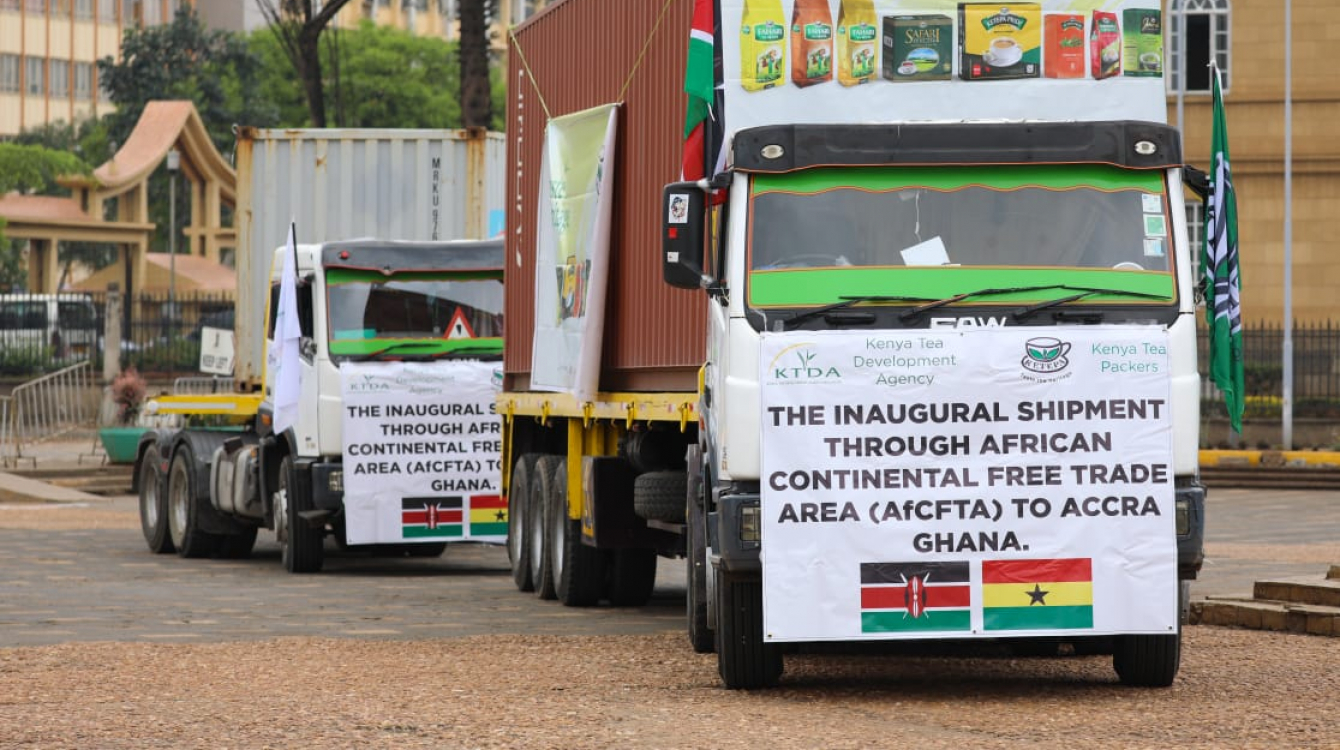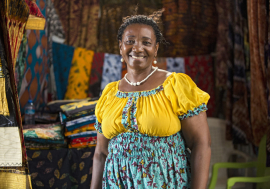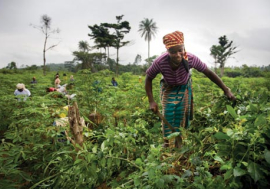A pilot initiative to accelerate trading among countries under the African Continental Free Trade Area (AfCFTA) has kicked off with consignments of Kenyan tea being shipped to Ghana earlier this month.
The Guided Trade Initiative (GTI) was launched in Accra, Ghana on 7 October and seeks to allow commercially meaningful trading, and test the operational, institutional, legal and trade policy environment under the AfCFTA.
“The products earmarked to trade under this initiative include ceramic tiles, batteries, tea, coffee, processed meat products, corn starch, sugar, pasta, glucose syrup, dried fruits, and sisal fiber, among others, in line with the AfCFTA focus on value chain development,” says Secretary-General of the AfCFTA Secretariat, Wamkele Mene.
The eight countries participating in the GTI are Cameroon, Egypt, Ghana, Kenya, Mauritius, Rwanda, Tanzania and Tunisia and represent five regions of Africa.
The products earmarked to trade under this initiative include ceramic tiles, batteries, tea, coffee, processed meat products, corn starch, sugar, pasta, glucose syrup, dried fruits, and sisal fiber, among others, in line with the AfCFTA focus on value chain development
Other countries that have met the requirements and deployed the AfCFTA E-Tariff Book and the Rules of Origin Manual and have officially published their tariff rates and have had them approved by the Secretariat—will also be able to take part in the Guided Trade Initiative.
At least 96 products will be traded under the GTI and the initiative will be reviewed annually to expand the list of countries.
Mr. Mene says intra-continental trade and investment will be rapidly boosted in the coming years and months because of the elimination of “Africa’s financial borders” and the launch of the Pan-African Payment and Settlement Systems(PAPSS), which “will release the continent from overdependence on external players and factors.”
The AfCFTA Secretariat will support the eight countries in trading, from shipment to customs clearing, and presents an opportunity to monitor the impacts of trade documents and procedures on pre-selected goods to get a sense of if tariffs are reduced in line with AfCFTA procedures
The AfCFTA Secretariat will support the eight countries in trading, from shipment to customs clearing, and presents an opportunity to monitor the impacts of trade documents and procedures on pre-selected goods to get a sense of if tariffs are reduced in line with AfCFTA procedures.
It will be a test of the effectiveness of the free trade area’s operations and policies, experts believe.
Under the AfCFTA, up to 90 per cent of liberalised goods will have tariffs reduced by the latest 2030 and 7 per cent by 2035. Countries are allowed to tax 3 per cent of produced goods.
The Agreement establishing the continental free trade area entered into force on 30 May 2019, and trading approved to kick off on 1 January 2021. The AfCFTA aims to consolidate a market of about 1.3 billion people with a combined GDP of $3.4 trillion. In addition, the World Bank says it could potentially lift 30 million Africans out of extreme poverty and increase the income of the continent by $470 billion by 2035.



























